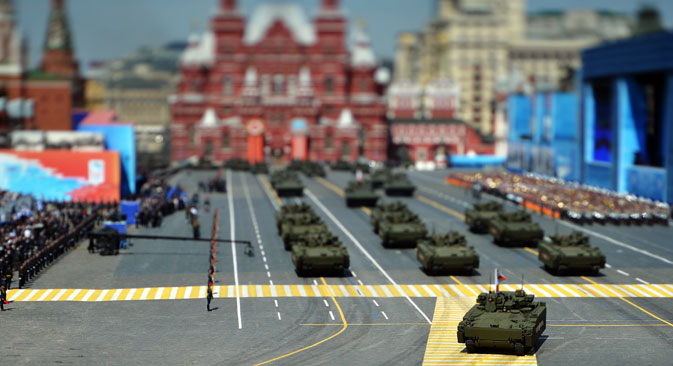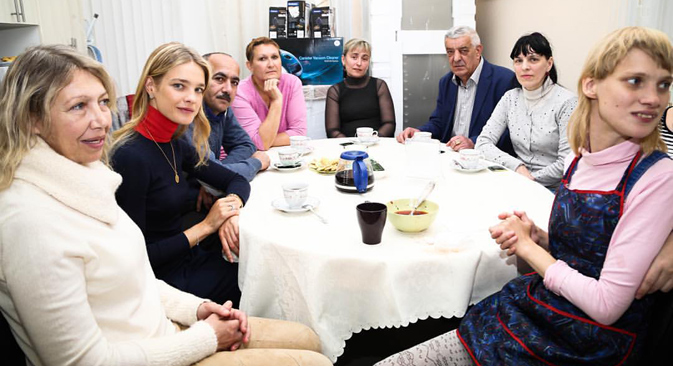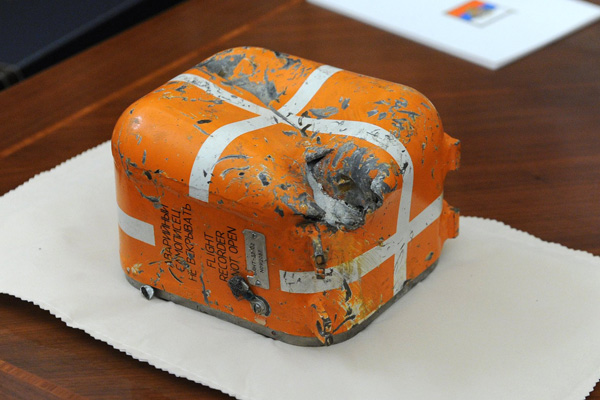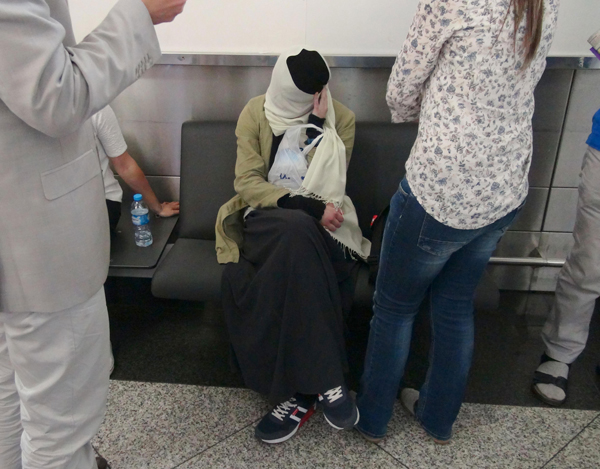2015 in review: 5 events that got Russian society talking

The military parade in Moscow, May 9, 2015.
Vladimir Pesnya / RIA NovostiMay 9: 70th anniversary of victory in WWII
On May 9, 2015, Russia celebrated the 70th anniversary of the victory over Nazi Germany in World War Two, or what is known in Russia as the Great Patriotic War. A vast ceremonial parade was held in Moscow to commemorate the occasion. More than 15,000 military men, including 1,300 foreigners from 10 different countries, took part in the parade.
One of the most distinctive symbols of the celebrations was the Bessmertny Polk (Immortal Regiment), in which people paraded through the streets of Russian cities holding photographs of deceased relatives who participated in the conflict. According to those who took part, the procession made them feel a connection with the country’s past and the generation of that era. By organizers’ estimates, about 12 million Russians took part in the event. The most numerous regiments were in Moscow (almost 500,000 people), in St. Petersburg (almost 200,000 citizens) and in Tula (more than 100,000 participants).
Natalia Vodianova’s story
The scandal that took place in summer 2015 involving the sister of global supermodel Natalia Vodianova did much to raise awareness of the issues faced by disabled people in Russia and sparked lively debate.
 Natalya Vodianova (second left) with her sister (right) in the Café Flamingo. Source: Natalia Vodianova / Facebook
Natalya Vodianova (second left) with her sister (right) in the Café Flamingo. Source: Natalia Vodianova / Facebook
On August 11, Oxana Vodianova, who suffers from autism and cerebral palsy, entered a cafe in the city of Nizhny Novgorod (around 300 miles east of Moscow) with her nurse. The cafe’s manager demanded that Oxana leave because she was “scaring off” the customers. On the same day her mother filed a police report, while Natalia Vodianova wrote about the incident in her blog. The Investigative Committee of the Russian Federation swiftly instituted criminal proceedings against the cafe’s employees under the article “Abasement of Human Dignity.” In the end both parties came to an agreement in court and the criminal proceedings were curtailed.
According to Natalia Vodianova, people act that way because they are poorly informed about disabled people.
‘Putin’ calls Elton John
Russian pranksters Vladimir Krasnov and Alexei Stolyarov succeeded in playing a practical joke on a global scale on Sept. 15 when they called pop singer Elton John, presenting themselves as Russian President Vladimir Putin and his press spokesman Dmitry Peskov.
Video by Vovan222prank / YouTube
During the call, which the “Russian leader” ostensibly made to discuss LGBT rights in Russia, Krasnov played Putin while Stolyarov, pretending to be Peskov, interpreted his speech in English.
The next day Elton John wrote on his Instagram account that he was grateful to the president for the call, causing international bemusement. Dmitry Peskov swiftly denied that Putin had phoned the singer. A day after the conversation the Russian pranksters admitted that it was them who had called the pop star, and even tried to apologize for the joke but could not get through.
However, the story took a further surreal twist when Putin subsequently made a genuine phone call to Elton John and the two shared a conversation. According to Peskov, Putin asked the singer not to be offended about the joke and expressed his readiness to meet for discussing any subjects.
Russians lose their favorite vacation destinations
In what amounted to a crippling blow to Russian tour operators, domestic travel companies stopped selling tours to the two most popular destinations among Russians – Turkey and Egypt – following two incidents involving Russian airplanes.
In the first, a Russian passenger plane operated by the Kogalymavia airline was brought down over the north of Egypt’s Sinai peninsula en route from the resort of Sharm el-Sheikh to St. Petersburg on Oct. 31, killing all 224 people on board.
The cause of the crash was later named as a terrorist attack. Russia has now suspended all flights to Egypt.
Less than a month later, on Nov. 24, a Russian Su-24 bomber jet taking part in the campaign in Syria was shot down by the Turkish air force on the Syria-Turkey border. On the same day Russian Foreign Minister Sergei Lavrov gave a speech recommending Russians not to go to Turkey for tourist purposes.
 The Su-24 flight recorder. Source: Kremlin.ru
The Su-24 flight recorder. Source: Kremlin.ru
According to the Federal Tourism Agency’s data, 2.09 million Russian travelers had visited these two countries by the end of the first half of the year – 38 percent of all Russians who spent their vacation abroad. Low prices and warm weather mean that both of these destinations are traditionally in demand among Russian holidaymakers.
Bride of ISIS
The story of Moscow State University Varvara Karaulova, who disappeared in May, was detained in Turkey while trying to reach Syria and was then arrested in October in Moscow on suspicion of being involved in recruitment activities for ISIS, has been one of the most discussed subjects of the year in Russia.
 Varvara Karaulova at the airport in Istanbul, Turkey. Source: TASS
Varvara Karaulova at the airport in Istanbul, Turkey. Source: TASS
The second-year student of the Faculty of Philosophy disappeared on May 27. It later turned out that she had left for Turkey and had been planning to get to Syria in order to join her “lover,” who she had met on the internet. Earlier the girl had been keen on Arabic culture and had even begun to come to university classes in a hijab. On June 4, she was found in a group of 14 Russians on the Syria-Turkey border and was brought back to Russia, escorted by her father (who had connections in the Interior Ministry) and representatives of Interpol.
According to investigators, Karaulova remained in contact with her recruiter after her return to Russia and for that reason she was arrested. To avoid public attention after this second incident, Karaulova has now changed her name to Alexandra Ivanova.
In the wake of this i hot line was set up at the Civic Chamber of the Russian Federation. It is aimed at helping people whose relatives are planning to leave for Syria or those who are already there. Law-enforcement authorities got seriously engaged in revealing recruiters and their victims.
Read more: Tale of a tiger and a goat in Russia's Far East warms hearts worldwide>>>
All rights reserved by Rossiyskaya Gazeta.
Subscribe
to our newsletter!
Get the week's best stories straight to your inbox